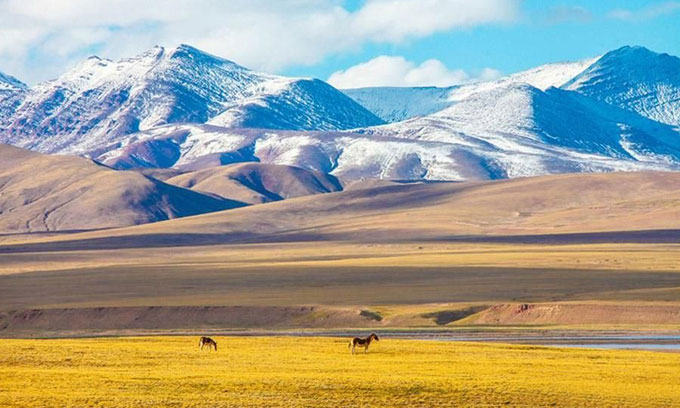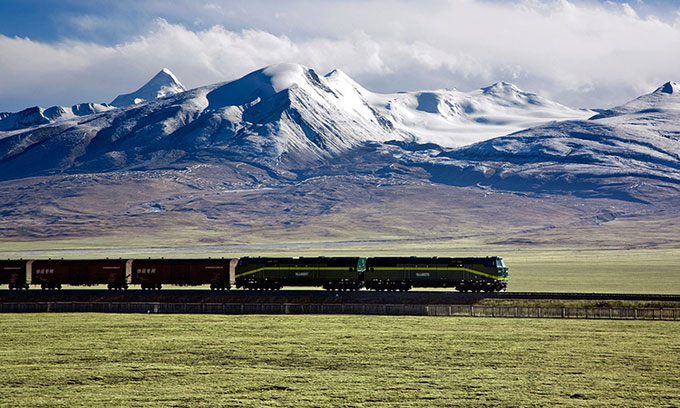The world's largest upland human gene bank
The bank that stores more than 120,000 human genetic samples on the Tibetan plateau to support altitude sickness research has been put into operation.
Experts from Hospital Xinqiao in Chongqing, southwest China, has completed a field study large scale extends to 15 years the population of the highland areas of the country, at the same time put in funds The largest human gene pool in the world , according to the Global Times.

The Tibetan Plateau is known as the "roof of the world". (Photo: China.org).
The bank currently holds more than 120,000 human genetic samples, of which 20,000 were added after the opening by 953 Hospital in Tibet Autonomous Region. This huge gene pool will provide support for medical research related to "plateau disease".
Altitude sickness has always been one of the biggest problems people from the lowlands face when coming to Tibet. Professor Jin Jun from the Department of Cardiology at Xinqiao Hospital said that plateau diseases have a high incidence and a high risk of death, but the technical means for treatment are currently limited.
Full biological gene support will contribute to the study of altitude sickness in Tibet, which has been dubbed the "roof of the world" or "the third pole of the Earth" with a higher average altitude. 4,000 m above sea level.

The altitude of more than 4,000 m is a challenge for newcomers to Tibet. (Photo: CGTN).
Altitude sickness is a human response to sudden exposure to an environment with low pressure and oxygen in the air. It can cause symptoms such as headaches, dizziness, shortness of breath, insomnia and loss of appetite, and even death by affecting the lungs and brain.
- Rice is safely preserved in Philippine gene bank
- He - launched the world's largest human gene repository
- Preserving rice genes in IRRI
- Discover Britain's largest brain bank
- Find the cause of serious diseases
- Vietnamese professors enrich the bank of precious rice genes
- The process of turning human brain into immortality in America
- Send the turtle gene to the world gene bank
- Brain Gene creates people
- The first complete map of human gene activity
- Successfully tested human gene implants on yeast
- The world's first human genome
 Norway built the world's tallest wooden tower
Norway built the world's tallest wooden tower Kremlin
Kremlin Ashurbanipal: The oldest royal library in the world
Ashurbanipal: The oldest royal library in the world Decoding the thousand-year construction of Qin Shihuang shocked the world
Decoding the thousand-year construction of Qin Shihuang shocked the world